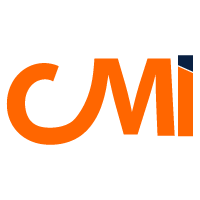Unit 2004V1 Controlling Resources
- March 7, 2023
- Posted by: Scarlett
- Category: CMI Level 2

Welcome to the world of resource control! In any organization, effective resource management is key to achieving its goals and objectives. Unit 2004V1 Controlling Resources is designed to provide you with the knowledge and skills needed to manage resources efficiently and effectively. This unit covers the key principles and techniques for controlling various types of resources, including financial, human, material, and information resources. You will learn how to use budgeting, scheduling, inventory management, and performance monitoring to manage resources and overcome challenges such as limited resources and changing market conditions. By the end of this unit, you will have a solid understanding of how to control resources in a way that contributes to your organization’s success.
Types of Resources
In Unit 2004V1 Controlling Resources, there are several types of resources that organizations need to control to achieve their goals and objectives. These include:
- Financial Resources: These are the monetary assets that an organization has at its disposal to fund its operations. Financial resources include cash, investments, loans, and credit lines. Effective management of financial resources is crucial to ensuring that the organization has the funds it needs to operate efficiently.
- Human Resources: These are the people who work for the organization, including employees, contractors, and volunteers. Human resources management involves recruiting, training, and retaining talented individuals who can help the organization achieve its goals.
- Material Resources: These are the physical assets that an organization uses to create its products or services, such as raw materials, equipment, and inventory. Effective management of material resources involves ensuring that the organization has the necessary materials and equipment to carry out its operations efficiently.
- Information Resources: These are the data and information that an organization uses to make decisions and carry out its operations. Information resources include databases, software, and intellectual property. Effective management of information resources involves ensuring that the organization has accurate and up-to-date information to make informed decisions.
Understanding these different types of resources is essential to controlling resources effectively. By managing these resources efficiently, organizations can improve their performance and achieve their goals more effectively.
Resource Control Techniques
In Unit 2004V1 Controlling Resources, there are various techniques that organizations can use to control their resources effectively. These techniques include:
- Budgeting: This involves creating a financial plan that outlines the organization’s expected income and expenses for a specific period. By creating a budget, organizations can control their financial resources and ensure that they have the funds they need to carry out their operations.
- Scheduling: This involves creating a timeline for the organization’s activities and tasks. By creating a schedule, organizations can control their time and ensure that tasks are completed on time and within budget.
- Inventory Management: This involves managing the organization’s material resources, including raw materials, finished products, and supplies. By managing inventory effectively, organizations can reduce waste, minimize costs, and ensure that they have the materials they need to carry out their operations.
- Performance Monitoring: This involves tracking the organization’s performance against its goals and objectives. By monitoring performance, organizations can identify areas that need improvement and take corrective action to ensure that they achieve their goals.
These techniques are essential to controlling resources effectively. By using these techniques, organizations can ensure that they have the resources they need to achieve their goals, minimize waste and inefficiencies, and improve their overall performance.
Challenges of Resource Control
In Unit 2004V1 Controlling Resources, there are several challenges that organizations may encounter when trying to control their resources effectively. These challenges include:
- Limited Resources: Organizations often have limited resources, which can make it challenging to manage them effectively. Limited resources can lead to increased competition for resources and can result in inefficiencies and waste.
- Changing Market Conditions: Organizations operate in a dynamic environment, and market conditions can change rapidly. This can make it challenging to control resources effectively as organizations may need to adjust their strategies and resource allocation to respond to changing market conditions.
- Employee Turnover: Employee turnover can be a challenge for organizations, as it can result in a loss of knowledge and expertise. This can make it challenging to manage resources effectively as organizations may need to spend time and resources training new employees.
- Complexity: The increasing complexity of modern organizations can make it challenging to control resources effectively. Organizations may need to manage multiple types of resources, including financial, human, material, and information resources, and may need to use multiple techniques to manage these resources effectively.
Managing these challenges is crucial to controlling resources effectively. Organizations may need to develop strategies to address these challenges, such as improving communication and collaboration, investing in training and development, and using technology to streamline resource management processes. By addressing these challenges, organizations can improve their resource control strategies and achieve their goals more effectively.
Conclusion
In conclusion, Unit 2004V1 Controlling Resources is a vital component of effective organizational management. By understanding the different types of resources and techniques for controlling them, organizations can improve their performance and achieve their goals more effectively. However, there are several challenges that organizations may encounter when trying to control their resources, such as limited resources, changing market conditions, employee turnover, and complexity. To overcome these challenges, organizations may need to develop strategies to improve communication and collaboration, invest in training and development, and use technology to streamline resource management processes. By addressing these challenges, organizations can improve their resource control strategies and achieve success in today’s dynamic and competitive business environment.
Related Articles:
Why Choose Us?
- GPT Zero
- 100% Non-plagiarised Papers
- Dedicated human resource writers
- 24/7 /365 Service Available
- Affordable Prices
- Money-back and Privacy guarantees
- Unlimited Amendments upon request
- Satisfaction guarantee
